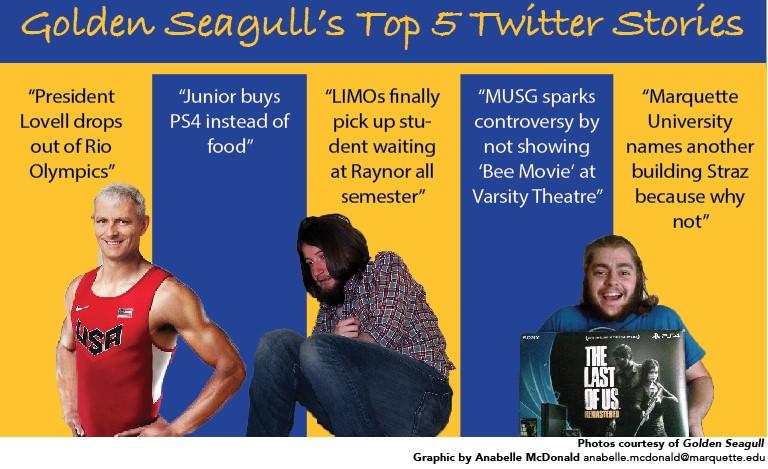Perhaps it was bad timing, during the Centennial Celebration of Women at Marquette, to attempt to start a male-oriented Bearding Society on campus.
That’s right: a club dedicated to appreciating phenomenal facial hair.
The Office of Student Development has not made a final decision on the club’s standing with the university.
“Our last contact with the group was last summer, and we haven’t heard anything else from them,” said Kate Trevey, coordinator for student organizations and leadership in OSD.
Founders Dave Kruse, a senior in the College of Arts & Sciences and Tom Klind, a senior in the College of Communication, admitted to not pursuing the club after being informed they would need to rewrite the proposed organization’s constitution.
“There was a very, very real possibility for it at the beginning of the academic year,” Kruse said. “Alas, life happens and I was not able to make a bearding club one of my life’s priorities.”
But just look at Kruse to understand the pride he has in his beard, something many other Marquette men share. Kruse has a beard that truly celebrates the freedom college men have with their facial hair.
“(Growing a beard) is nothing more than a dumb hobby that a lot of guys find fun,” Kruse said. “It’s fun to joke about various styles of beards and to get together and talk about them.”
Kruse, an apparent facial hair aficionado, said the Alaskan Whaler is one of his favorite types of beards.
However, he contends that all facial hair, not just beards, could be appreciated with the club. The club also sought to raise awareness about testicular cancer research.
“Male camaraderie (was) the true goal of the Bearding Society,” Kruse said.
However, not everyone on campus agrees with the scope of the group.
“I really think that it excludes those who cannot grow beards, men and women alike,” said Terese Hagerty, a senior in the College of Arts & Sciences. “I cannot grow one, and I feel excluded.”
Kruse holds that the club, if approved at a later date, would not aim to discriminate. He thinks the appreciation of facial hair on campus will promote diversity.
“On a strictly numerical level, women are far more involved on campus than men,” Kruse said. “The beard club would exist to bring males together under the banner of some silly commonality, like growing beards, and in turn encourage them to take leadership roles on campus.”
There are clubs on campus that are aimed specifically at women, like the Society of Women Engineers and Women in Business, something that has not escaped Kruse.
“Try though I may, I will never be a woman in business,” Kruse said. “But their existence and their cause does not in any way inhibit me from doing the things I want to do and saying the things I want to say. The beard club is no different.”
In fact, to be in the Bearding Society, students wouldn’t even need facial hair.
“The club would absolutely include women,” Kruse said. “Never have we said or done anything that would prohibit or otherwise exclude women.”
But he admitted that women would have to take up any discontent on their inability to grow a beard with God.
To the dismay of beard-growers across campus, the club will be excluded for now from the list of student organizations at Marquette.








